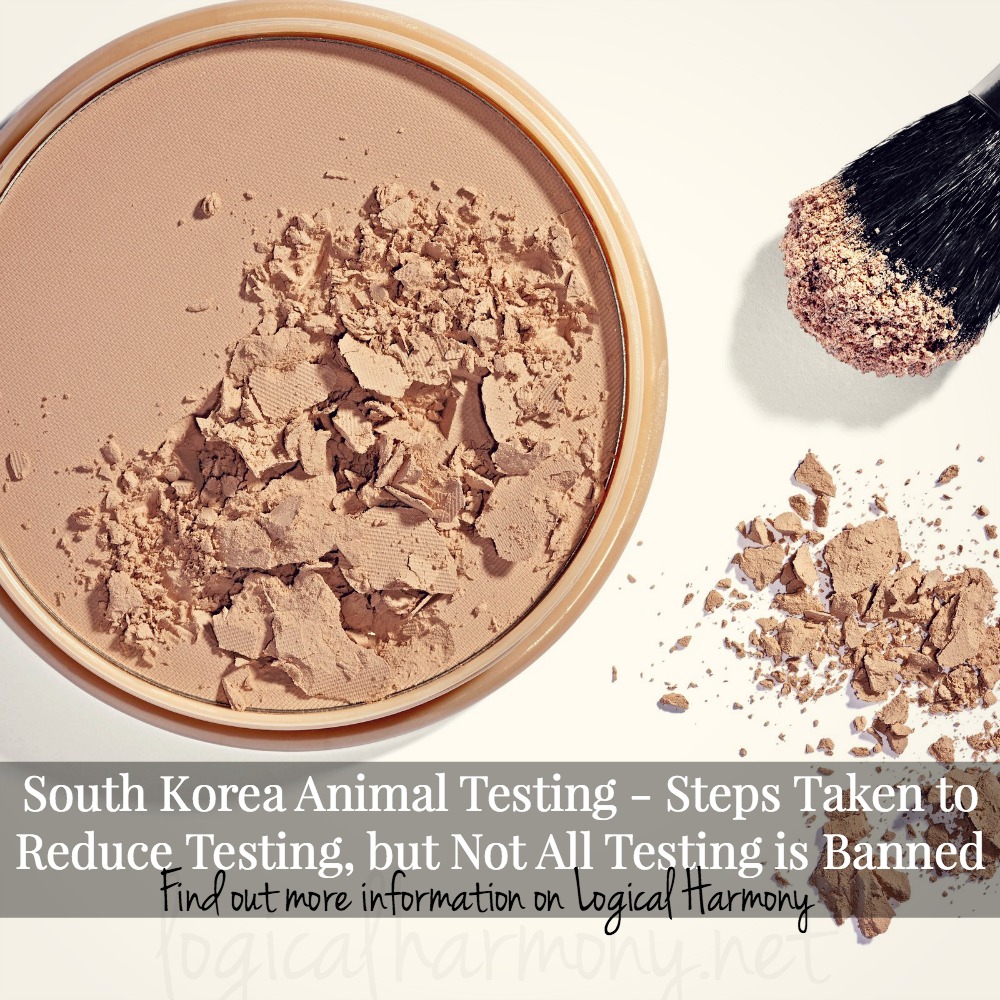South Korea Animal Testing – Steps Taken to Reduce Testing, but Not All Testing is Banned

Recently South Korea launched a bill that would reduce animal testing. While this reduction is worth celebrating, it is being called a ban on animal testing. The truth is that it is not a ban on animal testing. A lot of animal testing will still occur in South Korea and should not be compared to other bans that have been put in place elsewhere in the world.
The bill in South Korea would only ban animal testing in cases were accepted non-animal alternatives are available. This means that if no alternative is available, animal testing can still occur. The bill also exempts several types of ingredients that are often present in cosmetics and skin care – such as preservatives, colorants, and sunscreen chemicals. The South Korea bill would allow ingredients that have been tested on animals to comply with laws to be used. It would also allow items that have been tested on animals to comply with laws in regions outside of South Korea to be sold there.
While this is a great start, it is far from a ban on animal testing in South Korea. The fact that it is being called a ban and is being celebrated as such is very misleading to consumers around the world.
To learn more, continue reading South Korea Animal Testing – Steps Taken to Reduce Testing, but Not All Testing is Banned.
#BeCrueltyFree South Korea Campaign Welcomes Cosmetics Bill Requiring Mandatory Use of Alternatives, But Loopholes Must Be Closed
This is a milestone but not yet a full test ban
SEOUL (11 March 2015) – Humane Society International’s #BeCrueltyFree South Korea campaign joined Congresswoman Moon Jeong-Lim and officials on 11 March at the National Assembly to witness the launch of a Korean bill that marks an initial milestone towards ending animal testing of cosmetics in the country. The #BeCrueltyFree campaign has been working with the Congresswoman over the past two years, including intensive discussions last week regarding bill language. Most recently, the campaigners also held a public event with TV star Sam Hammington and LUSH Cosmetics to call for the bill to be an effective ban on cosmetics cruelty.
March 11 marks the two-year anniversary of the European Union’s ban on the sale of newly animal-tested cosmetics. However, #BeCrueltyFree’s South Korea campaigner Borami Seo cautions against comparing Korea’s bill with the total ban on cosmetics animal testing achieved in the EU. Unlike the EU ban, the Korean bill only bans animal testing where accepted non-animal alternatives are available. If an alternative is not available, the animal test will be allowed. This is an important departure from the precedents set by the EU, Israel and India, which have all banned cosmetics animal testing regardless of the status of alternatives. In this respect the Korea ban is equivalent to EU policy in 2004, but falls short of the full test ban introduced in 2009.
Seo said: “Our #BeCrueltyFree campaign has worked closely with Congresswoman Moon and Ministers and we are pleased to see South Korea take this first step toward ending cosmetics animal testing. We congratulate the Congresswoman, but we will continue to explore legislative measures to close loopholes and achieve a robust ban on all animal testing of cosmetics. Only then will Korea become a truly cruelty-free cosmetics market.”
The #BeCrueltyFree campaign is the largest campaign in the world for a global end to cosmetics animal testing, and has been working towards a ban in South Korea for more than two years. #BeCrueltyFree India was instrumental in achieving India’s ban on cosmetics animal testing and the import of newly animal-tested cosmetics from abroad, and globally #BeCrueltyFree is working on bans in eight other major markets.
#BeCrueltyFree campaigns director, Claire Mansfield said: “It is gratifying that #BeCrueltyFree’s nationwide campaigning and detailed policy discussions with legislators in Korea have created the political momentum to see this bill launched. However, it would be naïve and disingenuous to gloss over the fact that the bill contains several exemptions that could still allow some animal testing to continue well beyond 2017. So after the celebrations are over, #BeCrueltyFree will continue its work to achieve a comprehensive ban on cosmetic animal testing in Korea.”
Dr Carol Barker-Treasure, founder of the alternatives company XCellR8 Ltd, said: “We must always acknowledge progress, but with the entire EU, Israel and India all leading the way with watertight bans against all cosmetics animal testing regardless of the availability of alternative tests, it’s disappointing that South Korea has chosen a less ambitious path. Developing alternatives is undeniably important to improve the quality of science, but where animal testing of vanity products such as cosmetics is concerned, a lack of alternatives should never be allowed to stand in the way of the ethically right course of action, and in this case that would be a total test ban.”
Facts:
- The current bill exempts several product categories and types of ingredients from the scope of the ban, including preservatives, colourants and sunscreen chemicals;
- The current bill only bans animal testing where there are Korean government-accepted alternatives, whereas the EU, Israel and India all ban animal testing regardless of the status of alternatives because these countries recognize that companies have access to thousands of existing cosmetic ingredients with safe use histories which do not require further testing of any kind;
- The current bill would allow ingredients that are animal tested for other regulatory purposes to be used in cosmetics;
- The current bill would allow cosmetics tested on animals to meet mandatory requirements in other countries to be sold in Korea.
